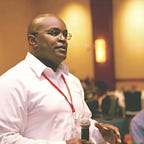A Matter of Acute Urgency
Tonight, when I read the preceding article, my thoughts returned to words written by Stacey Abrams in her book, Our Time Is Now:
The voting system is not just political; it is economic and social and educational. It is omnipresent and omniscient. And it is fallible. Yet, when a structure is broken, we are fools if we simply ignore the defect in favor of pretending that our democracy isn’t cracking at the seams. Our obligation is to understand where the problem is, find a solution, and make the broken whole again.
Abrams wasn’t wrong when these words were published a few years ago, and she definitely is not wrong now.
Ours is a country on a dogged march backwards; and some people have made it their mission to unwind the gains in social justice, equality, privacy, environmental protection, and criminal defense made over the last fifty to sixty years. As Justice Thomas of the SCOTUS telegraphed, the landmark reversal of Roe v. Wade was only the beginning; he and his ideological contemporaries were coming after everything they thought the Warren court got wrong. It is now clear that our voting rights, even as codified into law, are on that list. And so, with that being the case, I will repeat words that I have written elsewhere:
While some folks don’t see this as an issue, the right to vote is a right from which all liberties find their voice. We all know this to be true. It is the reason so many fought to deprive others of that right for generations — and still do so, even today. In fact, those who fear this country’s plurality know that their only way to push back against an inclusive America is to make sure that so many diverse people are left uninformed, disengaged, or non-participatory. They must hinder the ability to vote, especially when that ability is afforded to people who don’t look like them, think like them, worship like them, or act like them. And if those people do vote, then every effort must be made to decertify those votes. Just take a look at 2020 and the state laws being passed, across the country, ever since.
This is, as Martin L. King, III, rightly pointed out, a matter of acute urgency. But what it is not is a matter of impossibility.
The framework already exists to protect voting rights. Historically, Section 5 of the Voting Rights Act made real the preclearance provision requiring certain states and municipalities with historic patterns of discrimination to clear specific changes to voting rules before such changes could be instituted. While the Supreme Court rendered Section 5 inert with its 2013 ruling in Shelby County v. Holder, the same premise for preclearance can and should be the basis for broader legislation. In fact, under the guise of a preclearance provision applying to every state and municipality, the new legislation would satisfy the equal-protection aspects of the Constitution. And given that there has been documented need for such preclearance beyond those jurisdictions to which Section 5 first applied, and given that there is bipartisan support for the restoration of Section 5, this would be a lot easier to become law and stave off a retrogressive high court. (While this idea is offered, it says nothing about the impending fight over Section 2 of the Voting Rights Act, of course, which is before the court as we speak.)
The Democrats in Congress, being the most likely party to effect change, and being the most likely party to benefit from such change, have room to act, but against the whims of this court, their pace must be swift and certain and methodical. And to that end, the voters must recognize the importance of this moment, and in the upcoming midterms, the voters must keep the Democrats in power in both chambers of Congress.
It is with their majority that, in 2023, a new Congress will have the momentum and mandate to act!
To not do this, to give up and not get done something so important, would be an acceptance of defeat, an acknowledgement of an inability to govern, and a painful insult to millions facing wanton disenfranchisement. Worse, it would also in time be another great reversal in the progress we have made as a country.
I know that, if I can see this, others can, too — others whose voices are more powerful and influential than my own.
Now we must stand up and fight — not for one political philosophy or party over another. No, we must fight for every American’s ability to have a voice, to partake in our political process through their right to vote, and to have their vote counted without manipulation or blanket dismissal. And we must fight, because too many have fought and died, and too much progress has been made, for any of us not to do so in this moment of acute urgency.
